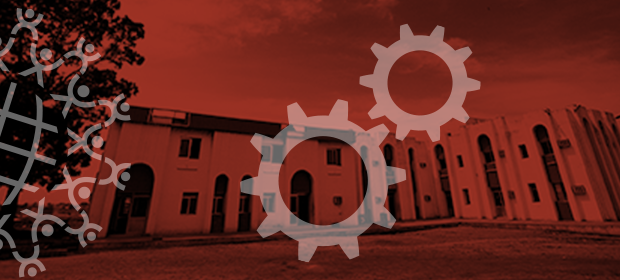Where We Work
See our interactive map


A few days ago, I conducted a supervisory visit to a health post in Senegal to check the implementation of the Informed Push Model project, which I have led since last August, and which has been distributing family planning products to all public health service delivery points (SDPs) across the country since 2013.
Within the Informed Push Model, we are focused on the health post pharmacy store, and its manager. So I went with my team and visited the depot of a rural health post in the district and region of Fatick.
The visit took nearly three hours, and as my team and I were leaving—as I was already crossing the gate—I remembered: vaccines! Immunization. The vaccine fridge.
How can we work in such a fragmented manner, each with our own blinders, in our own silos?
I stopped abruptly, turned back and looked for the head nurse in order to take a look in the fridge.
Was I Wearing Blinders?
Afterward, I came back to the car. While the other team members were chatting, I was silently remembering my 17-year World Health Organization experience, during which I had visited hundreds of centers and health posts in Africa, Asia, Europe, and even the Pacific Islands. I was interested only in the vaccines, the fridges, and the vaccination syringes and their destruction after use.
I do not remember ever once going to check the pharmacy store that received, stored, and managed medicines and other health products for all other health care services provided in health centers and health posts, including contraceptives for family planning.
How was this possible? How could I have been wearing blinders for 17 years that only let me see immunization, vaccines, syringes—and nothing else?I felt ashamed of myself!I imagined the poor nurses receiving “supervisory-monitoring-evaluation” teams from immunization programs one day; the next day, from family planning programs; two days later, from the programs on malaria; then HIV, tuberculosis, neglected tropical diseases, and on and on.
And each of those teams comes with its own requirements, its own data tables to fill, stressing its own deadlines, requiring the clinical staff to attend its own training programs.
And I was ashamed of the health system!How can we work in such a fragmented manner, each with our own blinders, in our own silos? And will it continue with every new global initiative?However, there is a glimmer of hope:
Then I smiled as I was remembering two things:
We owe it to our clients and fellow health workers to be integrated in our thinking and in our actions.
Those of us working in health supply chains must remember to look back often in order to carry forward with us the good things of the past and use them to build the foundation of the future.
As George Orwell once said: “He who controls the past, controls the future.”
We must think across programs, holistically. Even if the supply chains we work in are not integrated, we owe it to our clients and fellow health workers to be integrated in our thinking and in our actions. Integration starts with each of us.
IntraHealth's work with the Informed Push Model is funded by the Bill & Melinda Gates Foundation and Merck for Mothers. Starting in October 2015, we added 17 United Nations life-saving commodities for maternal and child health, as well as seven products from HIV/AIDS, malaria, and tuberculosis public health programs. We also added vaccines in the region of Saint-Louis to continue the legacy of the former Project Optimize.
Get the latest updates from the blog and eNews




